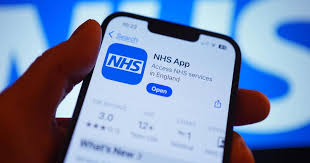The NHS App: Transforming Access to Healthcare in the UK

Introduction
The NHS App has emerged as a crucial tool in modern healthcare delivery, providing patients with 24/7 access to vital services and information at their fingertips. With the escalating demand for healthcare services, particularly in the wake of the COVID-19 pandemic, the NHS App represents a significant step towards enhancing patient engagement and access to medical resources. As it grows in use and functionality, understanding its features and benefits has become increasingly important for both patients and healthcare professionals.
Features of the NHS App
Launched in December 2019, the NHS App allows patients to book appointments, order repeat prescriptions, and access their health records securely. Users can see their test results and receive information about their local NHS services, making it easier than ever to navigate the complex healthcare landscape. The app also features a symptom checker and directs users to appropriate care options, which can be particularly useful in urgent scenarios.
Current Usage and Impact
As of early 2023, more than 30 million users have downloaded the NHS App, signalling a robust increase in digital engagement among the UK’s population. Reports suggest that around 80% of users find the app beneficial for scheduling appointments, while many appreciate its ease of use when ordering medications. Furthermore, the app has played a pivotal role during the pandemic, allowing people to access COVID-19 vaccination information and book appointments from the comfort and safety of their homes.
Challenges and Future Prospects
Despite the app’s success, it is not without challenges. Some users have reported difficulties in navigating the app or accessing specific features, particularly among older patients who may not be as tech-savvy. The NHS is responsive to feedback and continuously works on updates to improve user experience. Looking forward, incorporation of AI and machine learning could further enhance functionalities, such as personalised health management and predictive health alerts.
Conclusion
The NHS App represents a transformative move towards patient-centred healthcare in the UK, holding the potential to significantly alter how patients interact with their healthcare providers. As it evolves to include more features and integrate with new technologies, the app is likely to further improve accessibility and enhance overall health outcomes. For patients, understanding and utilising the NHS App is becoming increasingly important in navigating their health journeys effectively.









